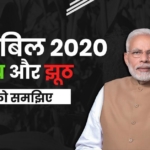
Today marks the first death anniversary of Atal Bihari Vajpayee ji. A year ago we lost the tallest leader of Bhartiya Janta Party. He left behind a legacy that will be treasured for the years to come.
Atal ji was a great statsman and politician. A prolific orator, he had taken vow while he was in school that he will never rote learn a speech. It is hardly a surprise how powerful his speeches were.
In 1942, Atal ji was arrested along with his brother for being part of the Quit India movement. He later joined the Rashtriya Swayamsevak Sangh in 1947 as a full time worker. In 1951, he took the reins of developing the newly formed political party – Bhartiya Janta Party along with Deendayal Upadhaya ji.He contested general elections in 1957 and was elected from Balrampur. His superior oratorical skills had impressed Pandit Nehru so much that he predicted one day, Atal ji will become the Prime Minister of India.
Atal ji was elected as the Prime Minister thrice. The first term in 1996 had lasted only for 13 days. His second term was also very short – it was only a period of eleven months from 1998 to 1999, He finally served a full term from 1999 to 2004. Under his leadership, several milestones were carved in the Indian history.
In May 1998, India conducted five underground nuclear tests at Pokhran. These tastes came in 24 years after the first test conducted in 1974. These tests garnered appreciation domestically and internationally. It also strengthened India’s position as a nuclear superpower.
In the latter half of 1998, Atal ji put in all his efforts to the peace process to ease Indo-Pak tensions. The Delhi-Lahore bus service was inaugurated in February 1999. Then came the Lahore Declaration which was a commitment between India and Pakistan to initiate dialogue to resolve the outstanding issues and work towards a goal of denuclearised South Asia. This declaration was very warmly received by the Indian public and the media. At an international level, it boosted optimism in other nations that a peaceful relationship between India and Pakistan will prevail.
The historic war of Kargil in 1999 also happened during his time in office. Militants had captured hill tops and unmanned border posts around the town of Kargil. Under Atal ji’s leadership, the Indian Army responded with Operation Vijay in May 1999. In the three month long war, Indian Army battled adverse weather conditions and put up a strong fight. Atal ji was determined to reclaim the captured territories and that’s what happened in the end. Almost 70% of the territory was reclaimed by India. Pakistan had to ultimately order the militants to withdraw from the Line of Control.
During his third term, US President Bill Clinton visited India. The dialogue resulted in expansion of the trade and economic relations between India and United States. The visit of President Clinton was a significant milestone in the Indian political history as it was the first State visit since President Carter’s visit in 1978.
He also fought strongly to strengthen the anti-terrorism laws in India, especially in the aftermath of the Parliament attack of 2001. Atal ji’s administration was responsible for the enactment of the Prevention of Terrorism Act, 2002. This act was aimed at curbing terrorist threats and gave more powers to the investigative authorities.
Under Atal ji, India also experienced a significant growth in the economy. The GDP was high by 7% every year between 2003 to 2007. The government was also responsible for introducing a string of tax reforms, irrigation and housing schemes and other economic reforms. The government also undertook several initiatives to ease investments and business in India. Some of the key reforms brought in under Atal ji’s administration includes the National Highway Development Project, Sarva Siksha Abhiyaan and Pradhan Mantri Gram Sadak Yojna.
In 2005, Atal ji retired from politics. Atal ji was a true gentleman. He never used any derogatory language to bring down his opponents. This attitude made him very popular both within and outside his party. He was a noted poet too. When he was imprisoned during the 1975 Emergency, he penned down a collection of poems titled Kaidi kavirai ki kundalian. In Atal ji’s own words:
My poetry is a declaration of war, not an exordium to defeat. It is not the defeated soldier’s drumbeat of despair, but the fighting warrior’s will to win. It is not the dispirited voice of dejection but the stirring shout of victory
In 2015, he was honoured with the highest civilian honour of India – Bharat Ratna. The government of Bangladesh also honoured him with Bangaldesh Liberation War Honor. In 2018, four Himalayan peaks near Gangotri glacier were named after him.
With Atal ji, we lost a true gem of a politician. On his first death anniversary, I offer my deepest condolences and remember him very fondly.

